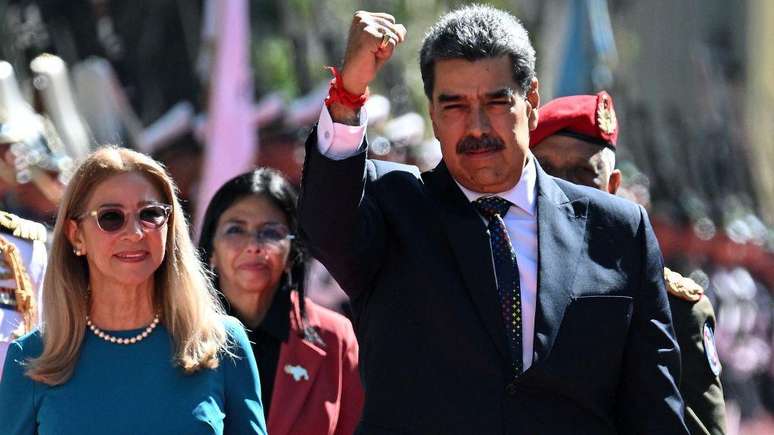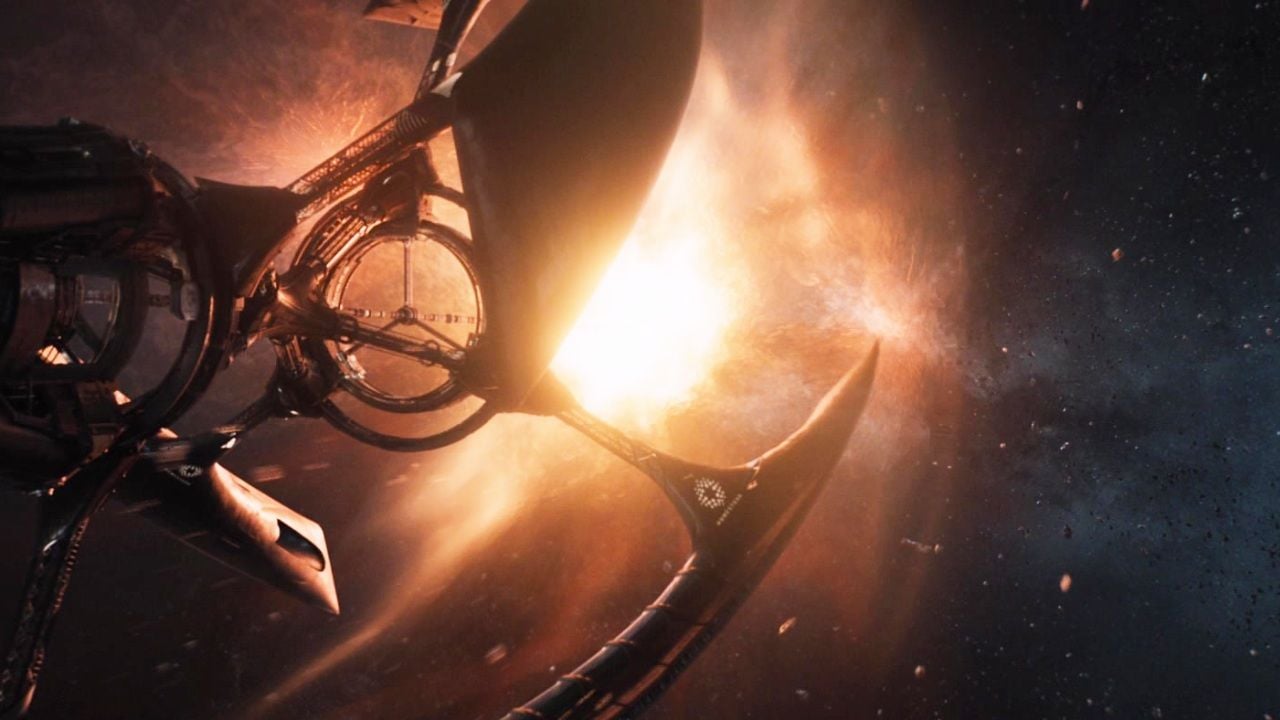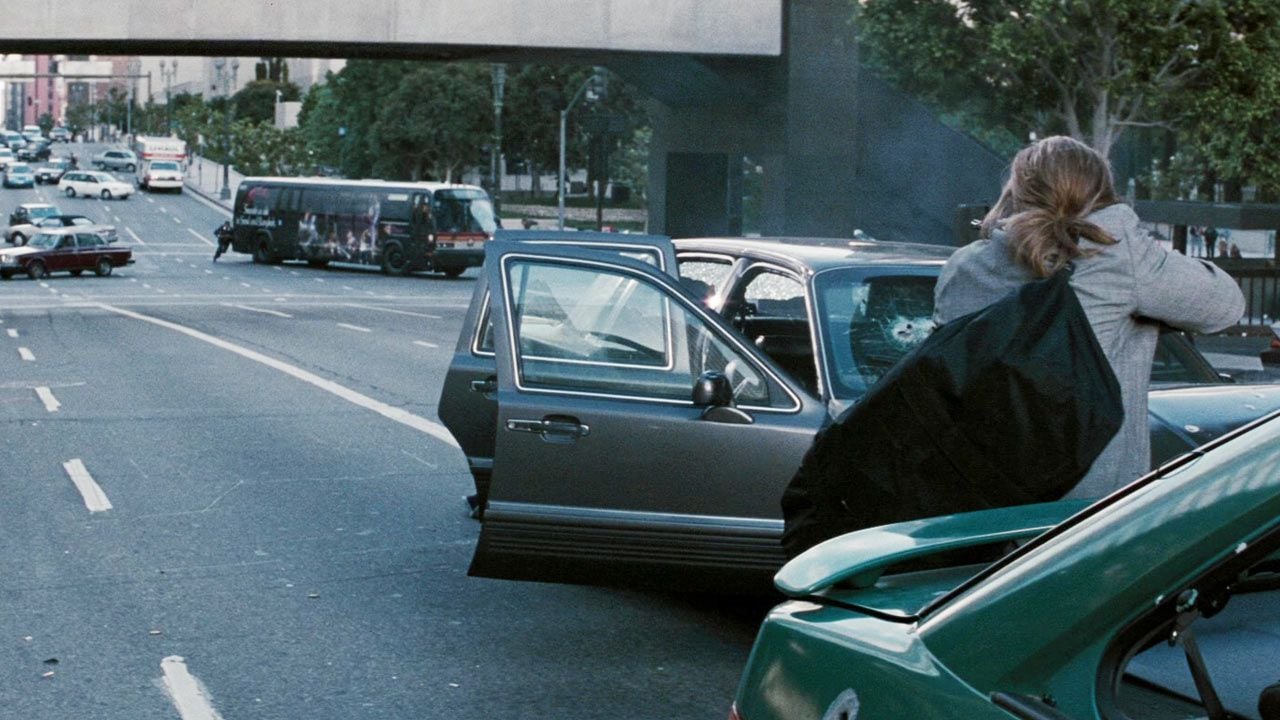With a defiant speech, Maduro began his third term, despite doubts about his legitimacy after the July 28, 2024 elections.
Nicolás Maduro has brought forward by a few hours the inauguration ceremony of his third term as president of Venezuela, this Friday (1/10), as the opposition intends to replace the contested president.
“They tried to transform the inauguration (…) into a world war. Let them invade, let them enter, let them leave… Let them say what they want to say, do what they want, but they were unable to prevent this inauguration constitutional constitution, and this is a great Venezuelan victory,” Maduro said.
Despite accusations of fraud by the opposition and international governments, the leader begins a third term marked by doubts about his legitimacy.
“I swear before this Constitution that I will fulfill all its mandates, that I will fulfill all the obligations of the Constitution and the laws of the Republic, and that this new presidential mandate will be a period of peace, prosperity, equality and new democracy,” Maduro said after having assumed the role in a session in the emblematic Salão Elíptico.
“I swear on history, I swear on my life,” he added, with his right hand on the Venezuelan Constitution, in front of the president of the National Assembly, Jorge Rodríguez.
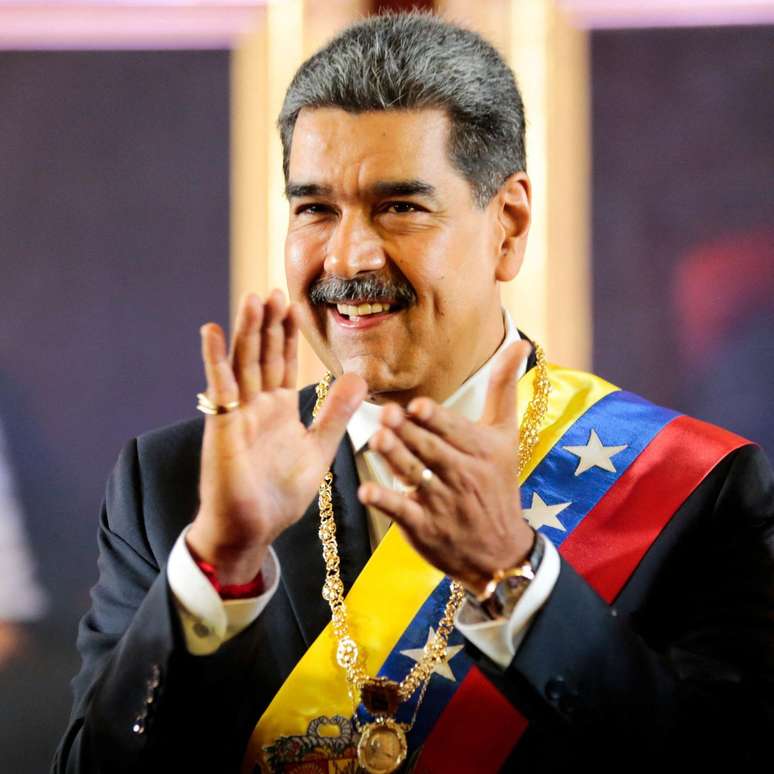
Challenging speech
After being sworn in, Maduro gave a long speech in which he claimed the legitimacy of his new presidential mandate.
“The power of the United States, together with its slaves in Latin America, turned the Venezuelan elections into a global election. And we won,” Maduro said.
The official leader has joked several times about the possibility of the arrival of opposition candidate Edmundo González Urrutia, who claims to be the real winner of the July 28 elections.
He has been in exile in Spain since September and has vowed to return to Venezuela and take up office.
“Has he arrived yet?” Maduro asked jokingly, amid laughter from guests at the event at the Legislative Palace, in Caracas.
The president accused “right-wing fascist governments in Latin America” of being “deranged” and “spreading hatred” for their failure to remove him from power.
“They haven’t learned from Guaidó’s experience,” he said, referring to the opposition politician recognized in 2019 as the country’s interim president by the United States and most European Union and Latin American countries.
The Chavista leader also targeted Argentine President Javier Milei.
“The Zionist far right led by a social sadist like Javier Milei, with the help of the North American empire, believed they could impose a president on Venezuela,” Maduro said.
Fraud reports
Maduro’s inauguration took place despite accusations of fraud by the opposition, which point to the victory of Edmundo Gonzálvez, recognized as president elected by other countries.
In recent days the opposition leader undertook a trip that took him to Argentina, the United States, Panama and the Dominican Republic to gather support.
Maduro’s inauguration ceremony began before the opening ceremony at the Federal Legislative Palace, home to Venezuela’s unicameral parliament.
The opposition claims González won nearly 70% of the vote, according to 80% of voting results published by the anti-Chávez alliance.
Without providing electoral evidence, the National Electoral Council (CNE), controlled by the ruling party, said the re-election candidate won with 52% of the vote.
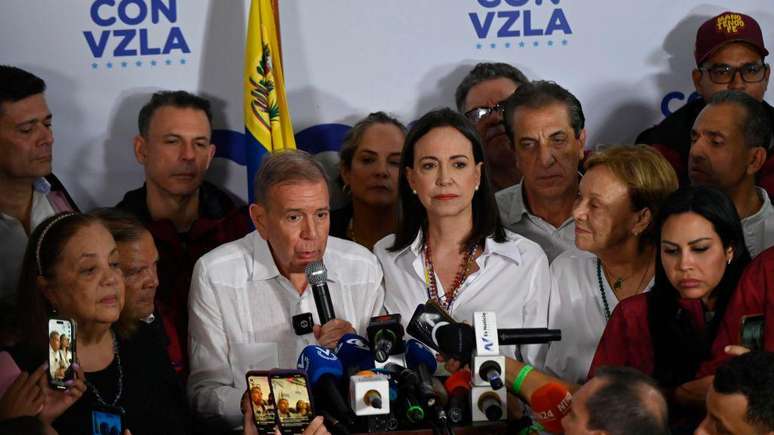
International guests
“I was very moved to receive the presidential sash,” Maduro said during his speech, given surrounded by the Venezuelan military high command, the highest representatives of public powers – all controlled by the ruling party -, his cabinet and international representatives.
The presidents of Cuba and Nicaragua, Miguel Díaz Canel and Daniel Ortega, respectively, were the only leaders from the region to attend the inauguration, after a majority of government officials questioned the election results and Maduro’s inauguration ceremony .
Representatives of Russia, Iran and China were also present.
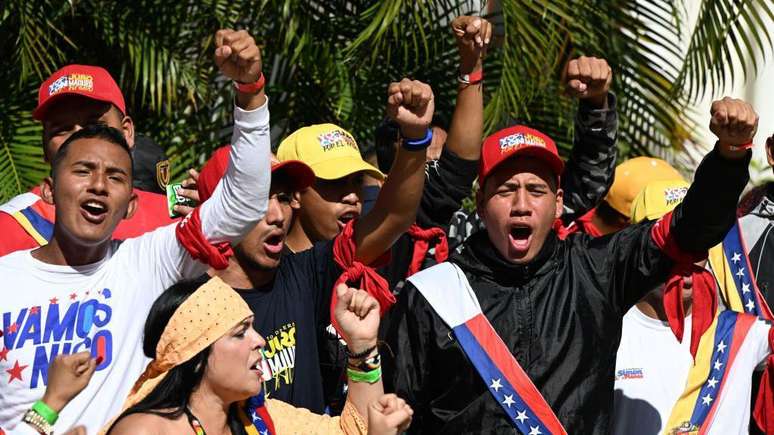
Most Latin American leaders refused to participate, including allies of Maduro’s government such as Colombian President Gustavo Petro and Brazilian President Luiz Inácio Lula da Silva (PT).
Lula chose not to attend the event, after the Brazilian government criticized the Venezuelan electoral process and refused to accept Maduro’s victory without the presentation of electoral registers certifying the result.
The country decided, however, to send a representative to the inauguration: the ambassador to Caracas, Gilvânia Maria de Oliveira.
The US government also supported the Venezuelan opposition. After the capture and release of María Corina Machado the previous day, Donald Trump, who will be inaugurated on January 20, called Gonzalez “president-elect” and said that both opposition leaders should remain “alive and safe”.
The current government of Joe Biden imposed this Friday further sanctions on Venezuela and increased the reward offered for the arrest of Maduro and other Chavista leaders to 25 million dollars (R$ 152 million), according to Reuters.
Recently sanctioned officials include the new head of Venezuela’s state oil company PDVSA, Hector Obregón, Venezuelan Transport Minister Ramon Velasquez, and military and police authorities.
The measure coincided with sanctions announced by Britain and the European Union against 15 Venezuelan officials, including members of the National Electoral Council and security forces. Canada also imposed new sanctions on Venezuela.
Maduro and his advisors have always rejected sanctions from the United States and other countries, saying they are illegitimate measures that amount to an “economic war” aimed at harming Venezuela, Reuters recalled.
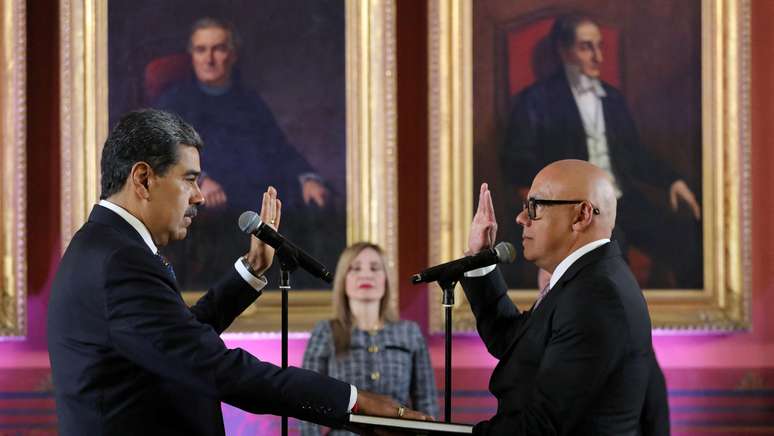
Persecution of opponents
Maduro was inaugurated in a tense atmosphere, a day after opposition leader María Corina Machado was arrested and released minutes after taking part in a nationwide protest against Maduro’s inauguration.
“What they do tomorrow will mark the end of the regime,” Machado said Thursday before a crowd of thousands of opposition supporters in Caracas. “We are in a new phase.”
It was later reported that the leader had been “violently” arrested by state security forces and later released.
Venezuelan authorities denied the arrest and said the opposition’s accusations were part of a “psychological operation” that sought to generate violence.
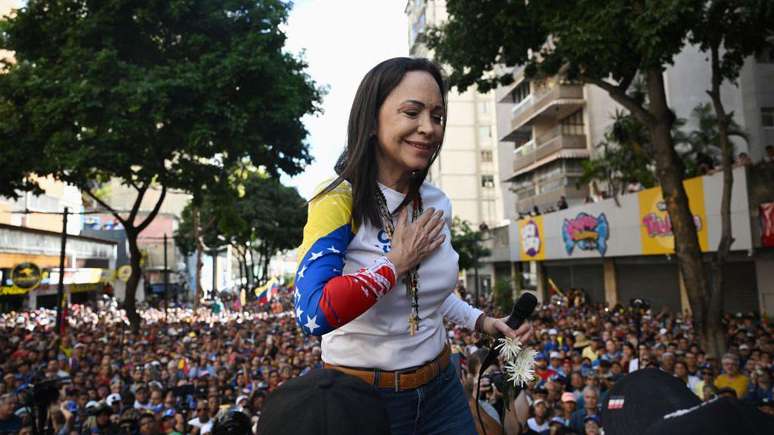
At least twenty people were arrested during 157 protests across states across the country the day before the inauguration, the Venezuelan Observatory of Social Conflict (OVCS) reported.
Maduro’s government has launched a wave of arrests of leaders, activists and ordinary citizens following the protests sparked by the announcement of his victory in the July 28 elections.
In the last five months, more than 2 thousand people have been arrested, including at least 100 minors.
After Maduro took office, the government activated an intense security mobilization involving police and military forces across the country, who set up checkpoints in the streets to prevent opposition meetings.
The 1,200 uniformed officers who took to the streets were joined by officials from the Directorate of Special Actions of Military Counter-espionage (DGCIM), which, together with the Bolivarian National Intelligence Service (Sebin) and the Army, is among the bodies accused of such as the United Nations (UN) to commit crimes against humanity, such as torture, enforced disappearances and arbitrary detentions.
Source: Terra
Rose James is a Gossipify movie and series reviewer known for her in-depth analysis and unique perspective on the latest releases. With a background in film studies, she provides engaging and informative reviews, and keeps readers up to date with industry trends and emerging talents.

